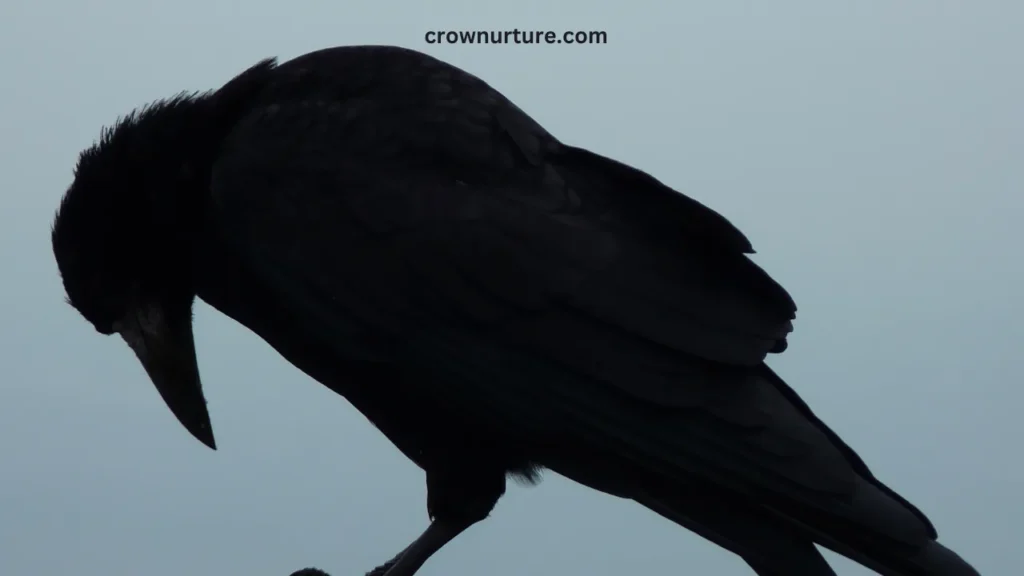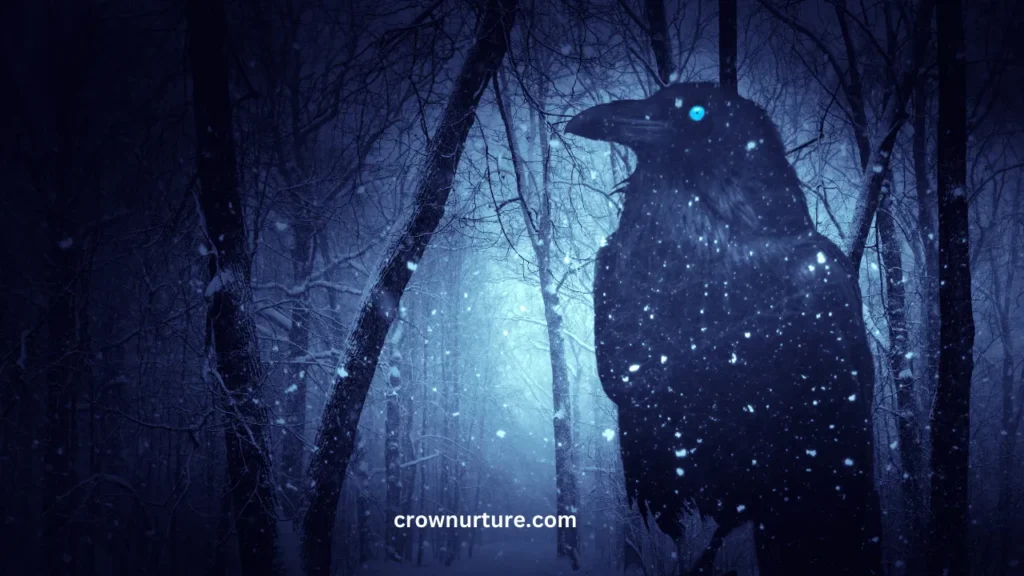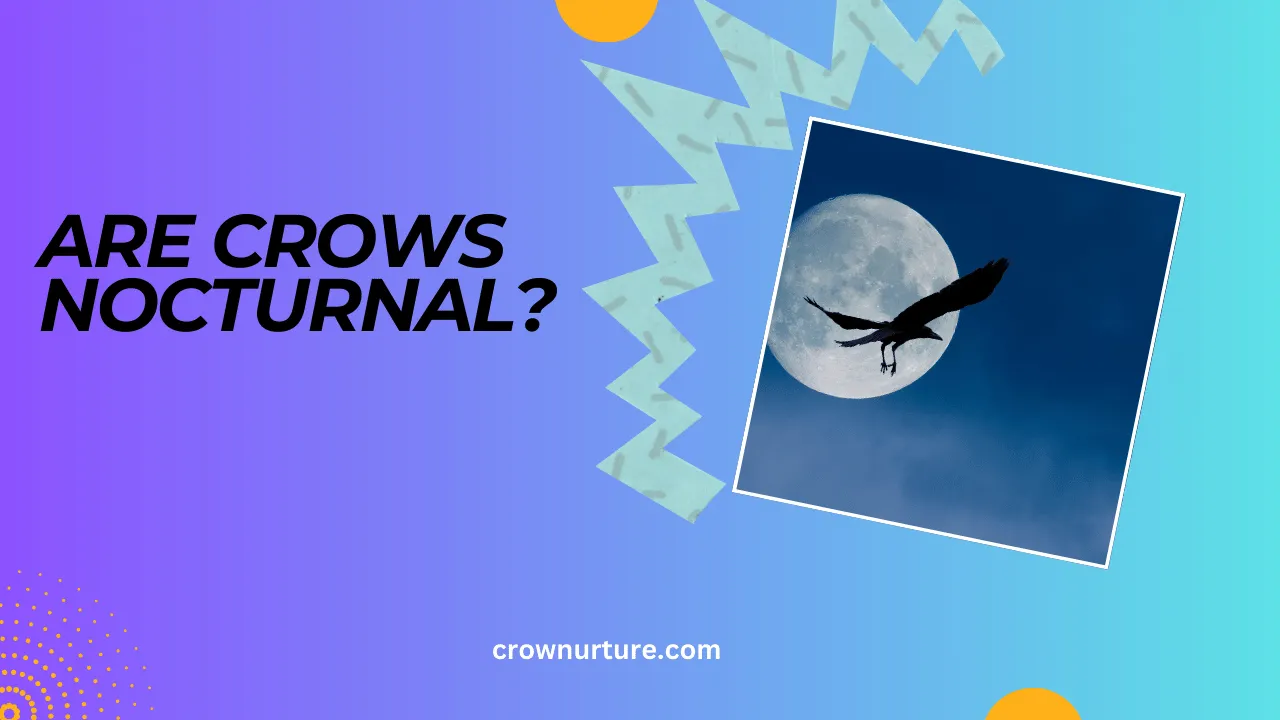Crows are among the most intelligent and resourceful birds in the world, earning admiration for their problem-solving skills and complex social behavior.
We see them actively going about their business during the day, scavenging for food, cawing in groups, or standing watch over their territories. But have you ever stopped to wonder: What happens to crows when the sun sets?
The question of whether crows are nocturnal is an intriguing one. Are they prowling under the cover of darkness, or do they retreat to rest like most daytime creatures?
While they’re not known to be nocturnal in the traditional sense, certain factors—like urban lights, food availability, or environmental stressors—can influence their behavior at night.
This article delves deep into the patterns of crow behavior, shedding light on their sleep routines, their rare moments of nighttime activity, and how human development has reshaped their lives.
Understanding these nuances helps us appreciate not only their adaptability but also the delicate balance of the ecosystems they inhabit.

Contents
1. Crow Sleep Patterns
Crows are fundamentally diurnal birds, meaning they are active during the day and rest at night.
- Diurnal Nature: Crows rely on their keen eyesight, which is not well-suited for low light conditions. As a result, most of their foraging, socializing, and territorial defense occurs during the day. When darkness falls, their activities wind down.
- Rest Periods: Throughout the day, crows take brief rest breaks to conserve energy, but these pauses are different from their longer periods of nighttime sleep.
- Communal Roosting: At night, crows often gather in large roosts to sleep. These roosts can house hundreds or even thousands of individuals, offering warmth, safety, and opportunities for social bonding. Roosting sites are typically high in trees or secluded areas, away from ground predators.
2. Nocturnal Activity
While crows are not strictly nocturnal, they occasionally exhibit limited nighttime activity under specific circumstances.
- Unusual Conditions: Crows may stay active after dark if food is scarce or if their environment has been disturbed by predators or human activity. This adaptability allows them to survive in challenging situations.
- Predation Threats: In the presence of nocturnal predators like owls, crows may alter their roosting behavior to stay safe. In some cases, they relocate or create disturbances to drive predators away.
- Adaptation to Urban Life: In cities, artificial lighting can extend a crow’s activity period. They might scavenge for food near illuminated areas or adjust their sleep patterns to adapt to the constant noise and light pollution.

3. Impact of Human Activity
Human development has significantly altered the behavior of many species, and crows are no exception.
- Artificial Light: Bright lights from cities disrupt natural sleep-wake cycles, sometimes causing crows to remain active longer than they would in natural darkness. This phenomenon is especially noticeable in urban areas where roosting sites are illuminated.
- Urban Food Sources: Crows in cities often find abundant food, from garbage bins to leftover scraps. The availability of these resources can encourage nighttime foraging, especially in areas with 24-hour human activity.
- Noise Pollution: Constant noise in urban environments can keep crows alert, delaying their sleep or prompting them to move to quieter locations. These disturbances can increase their nighttime movements.
4. Myths and Misconceptions
The idea of crows being nocturnal is often fueled by legends and misunderstandings about their behavior.
- Nocturnal Legends: Throughout history, crows have been associated with mystery, death, and the supernatural, leading to tales of them being active at night. While these stories are culturally significant, they are not scientifically accurate.
- Confusion with Other Birds: People often confuse crows with true nocturnal birds, like owls or nightjars. However, unlike these species, crows do not possess adaptations such as exceptional night vision or silent flight, which are necessary for nocturnal activity.
- Misinterpreted Behavior: Observing crows active at dusk or under artificial lights might lead to the mistaken belief that they are nocturnal. However, these instances are situational rather than reflective of their natural habits.
5. Crows’ Adaptability and Resilience
Crows are incredibly adaptive creatures, capable of altering their behavior to fit their surroundings.
- Urban Survivors: In urban landscapes, crows have shown remarkable flexibility. They exploit human-provided resources, tolerate disturbances, and even thrive in environments that would challenge less adaptable species.
- Seasonal Variations: In colder months, crows prioritize communal roosting for warmth and may shift their activity slightly to conserve energy or avoid harsh conditions.
- Problem-Solving Birds: Known for their intelligence, crows use their keen problem-solving skills to navigate obstacles, including disruptions to their natural routines. Whether it’s adjusting their roosting sites or finding food after dark, they consistently adapt to survive.
Conclusion
Crows are not nocturnal by nature, but their behavior reveals an extraordinary ability to adapt to their environment. These birds are primarily diurnal, spending their days foraging, socializing, and defending territories before settling into large communal roosts at night.
However, in certain conditions—like food scarcity, artificial light, or predator disturbances—they may exhibit occasional nighttime activity. Understanding crow behavior provides a fascinating glimpse into their intelligence and resourcefulness.
As they navigate an ever-changing world shaped by human activity, they continue to thrive, demonstrating their resilience. By protecting their natural habitats and minimizing human disruptions, we can help ensure that these remarkable birds continue to play their vital role in ecosystems worldwide.
FAQs
1. Are crows nocturnal?
No, crows are primarily diurnal, meaning they are active during the day and rest at night.
2. Do crows sleep at night?
Yes, crows typically sleep at night in communal roosts, which offer safety and warmth.
3. Can crows be active at night?
While rare, crows can exhibit limited nocturnal activity in response to disturbances or environmental factors.
4. Why do crows gather in large groups at night?
Crows roost in large groups for protection against predators, warmth, and social interaction.
5. Are there any nocturnal species of crows?
No, all known species of crows are diurnal, with no evidence of strictly nocturnal behavior.
6. Does artificial light affect crows?
Yes, artificial light can disrupt their sleep patterns, sometimes increasing nighttime activity.








